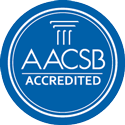Economics Course Listing
ECON1HB. ECON HBSI Transfer Pillar
ECON Pillar Course
ECON1XX. Economics Elective
ECON216. Demystifying the Global Villag
Students will explore the global village, with a particular look at the developing world. Themes include globalization, poverty and inequality, population growth, comparative economic systems, institutions that promote or deter prosperity, the role of trade in development, foreign aid, the immigration debate, and the resource curse. Students will appreciate that the quality of a country's institutions influence standard of living, the system of incentives, and, ultimately, the culture. 3 credits. SI, FGLO.
ECON217. Principles of Microeconomics
In this introductory course, students learn to think like an economist and apply microeconomic principles to the study of how individuals and societies make decisions in the face of scarcity. By the end of the course, students will be able to combine abstract concepts with formal analytical tools, such as supply and demand, in order to understand how markets work, how individuals and firms make decisions, and how the decisions impact real market outcomes. Applications to current public policy issues are highlighted throughout the course, for example, issues surrounding minimum wage laws and trade policy. Business applications include understanding profit maximization, consumer price sensitivity, and competitive and monopolistic industries. 3 credits.
ECON218. Principles of Macroeconomics
This course covers many fundamental questions such as: Why do some countries improve their living standards while others do not? Why do recessions occur? Is the middle class shrinking or growing, and if so, why or why not? Such questions are explored by combining an understanding of how economists measure broad economic activity with a core set of fundamental principles. Fiscal policy, related to taxation strategies, government spending, and national debt is examined. Students also learn how the Federal Reserve used monetary policy to improve macroeconomic outcomes, such as minimizing the economic effects of recessions. Students completing this course will be better prepared to actively engage in the on-going central economic issues facing American society. Prerequisites: ECON 217 or permission of Instructor. 3 credits.
ECON295. Special Topics
Selected topics in economics. The topics may vary from semester to semester. May be repeated for credit when topics change. 1-3 credits.
ECON2HB. ECON HBSI Transfer Pillar
ECON AE Pillar Course
ECON300. StuAbroad:Intro Southeast Asia
This course is offered in conjunction with study abroad to destinations in Southeast Asia (usually Thailand but potentially Malaysia or Vietnam). Students learn about the country and region’s geography, economy, political institutions, participation in global trade, the state of the environment, importance of religion in the culture, and social issues, with an important theme being how politics and religion influence the economy. An active travel itinerary is designed to immerse students in the rich culture, expose them to both urban and rural locations, provide opportunities to interact with locals in meaningful ways, and allow them to experience life in the developing world. The course starts online and is completed overseas. Prerequisites: Completion of FHBS and permission of instructor is required. 3 credits. WI.
ECON301. SA-Econ Dvlpmt Tour Sust Costa
This course is offered in conjunction with study abroad in Costa Rica, a developing nation that is a global leader in sustainable development. Students will learn about the economy, key exports (coffee, sugar, bananas, pineapples, and palm oil), role of global trade, the nation’s approach to sustainability, and tourism/ecotourism. Students will evaluate the historic choices made by Costa Rica that have allowed for greater focus on education, social justice, and environmental stewardship, priorities that can be felt even in small rural villages that will be visited. Students will be immersed in the Tico culture while reflecting on what the USA can learn from this developing nation.
ECON301. SA-Econ Dvlpmt Tour Sust Costa
This course is offered in conjunction with study abroad in Costa Rica, a developing nation that is a global leader in sustainable development. Students will learn about the economy, key exports (coffee, sugar, bananas, pineapples, and palm oil), role of global trade, the nation’s approach to sustainability, and tourism/ecotourism. Students will evaluate the historic choices made by Costa Rica that have allowed for greater focus on education, social justice, and environmental stewardship, priorities that can be felt even in small rural villages that will be visited. Students will be immersed in the Tico culture while reflecting on what the USA can learn from this developing nation.
ECON302. Law for Economists
Students will evaluate the law based on economic principles and will form connections to public policy. Specifically, students will examine the effects of current law on behavior and predict the effects of future laws on society. Topics include economics of crime and punishment, economic theory of property and property liability, and medical malpractice. Students will apply legal and economic concepts to recent cases. Prerequisite: ECON 217. 3 credits.
ECON304. Calling Bullshit
Citizens are inundated with bullshit. Elected representatives, social media, think tank organizations, and your overly confident uncle ignore basic facts, economic foundations, scientific principles, and fundamentals of statistics. In this course, we examine the sources of bullshit in economic discussion, and learn how to integrate and apply key economic models/principles with scientific reasoning foundations to better detect and combat bullshit surrounding major economic issues. PHBS 3 credits.
ECON307. Econ Dvlpmt Trans to Free Mkt
This course represents a unified approach to issues that have been traditionally partitioned into two separate subjects, the Economics of Development and Economics Systems. The events of 1989 in Eastern and Southeastern Europe brought political and economic changes, which highlight the fact that the countries undergoing transition from a centrally planned economy to free markets face challenges that are similar to those of the developing countries. That is why we examine the processes of transition together with economics development in a unified context with common basis in methods of analysis and measurement. Prerequisite: ECON 217 and 218. 3 credits.
ECON308. Econ of Money & Banking Sector
Financial crises experienced around the globe illustrate the importance of the central bank and its role in addressing a country's economic problems. This course builds students' understanding of financial markets and institutions, and the critical role they play in the economy. Students investigate the interaction between monetary policy and the financial system and how this dynamic impacts businesses, households, and the economy overall. Key question might include: How is the financial system organized? How and why might financial systems be vulnerable? What is the best regulatory approach to promote stability in financial markets? How do central banks administer monetary policy to promote macroeconomic stability? Prerequisites: ECON 217 and 218. 3 credits.
ECON309. Econ of Business Stat&Decision
This course refines critical thinking skills, as students apply economics in the context of business decisions, allowing for a better understanding of the external environment in which firms operate. For example, students explore strategies related to the pricing of goods and services, dealing with market competition, making decisions in the face of incomplete information, and analyzing demand data. This course will improve strategic decision-making in a wide range of key business functions. Offered spring semester only. Prerequisites: ECON 217 and MATH 301. 3 credits.
ECON313. Economics of Public Policy
This course takes a look at the public sector and government's role in the economy. Emphasis is placed on the economic evaluation of government policies and programs, as well as potential reforms in areas such as state and federal tax structures, privatization, health care, education, social security, and drug legalization. Students refine their critical thinking skills as they evaluate relevant normative and positive questions in the development of policy, as well as issues related to equity, efficiency, market failure, tradeoffs between winners and losers, and unintended consequences. For example, how does the federal tax code incorporate both efficiency and equity concerns? How does the design of the social security systems make it difficult to phase it out, should we want to do so? What are the concerns with delivery of health care in the United States, and what are the pros and cons of national health care? At the end of the course, students will have the knowledge needed to contribute to discourse about key voter issues. Prerequisites: ECON 217. 3 credits.
ECON314. Envrmtl and Resrc Economics
This course addresses environmental concerns through the lens of economics. The course introduces students to key environmental issues and how economic tools such as market pricing, taxes, subsidies, property rights, tradable allowances, incentive structures, and rational self-interest of consumers can be employed to address concerns. Topics include population growth, pollution externalities, clean air legislation, rainforest destruction, endangered species legislation, animal poaching and the tragedy of the commons, over-harvesting in fisheries, eminent domain and regulatory takings, and the resource curse as seen in developing nations. Prerequisite: ECON 217. 3 credits.
ECON317. Intermediate Microeconomics
This course examines the behavior and decision-making of individual economic agents (firms and households), as well as how they interact and produce economic outcomes. The first part focuses on developing models of individual or business choices: how consumers choose the quantity of products to demand and what influences this choice, and how firms pursue production and pricing strategies designed to maximize profits. The second part builds models of equilibrium: how buyers and sellers interact to produce economic outcomes. This course is designed to sharpen students' analytical skills and their ability to frame and evaluate economic issues. Offered fall semester only. Prerequisite: ECON 217. 3 credits.
ECON318. Intermediate Macroeconomics
In the first part of this course, students investigate why some countries grow rapidly while others remain impoverished. Using a model of economic growth, students explore these discrepancies and analyze how public policies can create conditions for future growth. In the second part, students examine the business cycle--the short run fluctuations in economic activity that lead to periods of inflation or send economies into a recession--and public policies used to minimize the effect of such events. Additionally students examine country-specific data on education, income, investment, population growth, and other macroeconomic indices, to further enhance analytical skills and bridge economic theory and principles learned in the introductory macroeconomics course. Offered spring semester only. Prerequisite: ECON 217 and 218. 3 credits.
ECON319. Int'l Economics & Global Trade
Economic activity between countries has long been the source of intense study, and it continues to be a hot political issue with heated discourse. For this reason students need to be well informed so they can contribute to the discourse. For example, when consumers purchase an imported good, does it hurt or help the US economy? More generally, is trade a win-win proposition or is it a zero sum game with clear winners and losers? Should we be concerned about a trade imbalance with countries like China? IN the context of trade, is a strong dollar good or bad for the US economy, and how can exchange rates be manipulated? By developing models of international trade and finance and then applying them to real world contexts, this course prepares students to engage in the debate about international issues. Prerequisites: ECON 217 and 218. 3 credits.
ECON346. The Resource Curse: Conservati
This class is offered in conjunction with study abroad in Ecuador and focuses on the importance of the Amazon rainforest as an ecosystem and as a contributor to economic growth. Students will gain an understanding of tropical ecology, conservation biology, and environmental economics as they apply to the Amazon environment and communities, with a basis of scientific reasoning to develop an informed perspective on civic and global issues. A particular topic of interest will be the decision to drill for oil in the Amazon and the impacts on biological, sociological, and economic systems. The course will highlight the integration of both conservation and economics, while exploring the tradeoffs associated with drilling. This class may not be used to satisfy the economics electives requirement of the B.S. in Economics, the BSBA with concentration in Economics, or the Economics minor. Pre-requisites: Completion of FHBS and FSRC 3 credits.
ECON411. Econ of Labor & Discrmntn
Economic analysis of labor markets, including issues of labor supply and demand, wage determination, unemployment, job search, education, and other human capital investments. Emphasis will be placed on the analysis of data on labor market outcomes relative to ethnicity and gender. Theories of discrimination will be addressed. Policy issues and programs such as minimum wage, comparable worth pay programs, and affirmative action will be discussed. Prerequisite: ECON 217. 3 credits.
ECON414. Econometrics and Forecasting
Introduction to the basic concepts used in economic data analysis. Emphasis is on applications of linear regression techniques to analyze common empirical problems in economics, business, and government. Forecasting techniques that are commonly used by economists will be covered. Students will receive hands-on experience in data collection, computer software, and project design. Prerequisites: ECON 217, 218, and MATH 301; and senior status; or permission of instructor. 3 credits.
ECON416. Thinking Strategically: Game T
Thinking Strategically: Applied Game Theory- This course examines decision-making in an interdependent environment. Often choices are difficult to make because there are other active decision makers whose choices interact with each other. Such situations are known as games and this course explores the science behind these games. Knowledge of game theory will give students an advantage in such strategic settings. The course will cover simultaneous and sequential games, games of perfect and incomplete information, and one period and multi-period games. Prerequisite: ECON 217. 3 credits.
ECON417. Econ Growth,Devlpmt,Publ Polic
Economic growth is a primary objective for any country, yet rates of economic growth different significantly across the globe. To shed light on this, students explore the patterns in economic growth, both across countries and over time, to uncover the stylized facts. Students connect growth theories to real world issues through the use of economic models and the application of country-level data. Students examine both traditional and current policy issues related to population growth, poverty, education, technological change and innovation, and trade. The public policy implications related to growth and development are highlighted. Prerequisites: ECON 217 and 218. 3 credits.
ECON461. Senior Research Experience
This course is designed as a capstone research experience for students in their senior year of the economics program. Students will craft a research question and complete a semester-long investigation on the topic of their choice. Students will refine their analytical and research skills as they review related literature, design well-specified econometric models, create and manage large data sets, apply regression analysis and appropriate diagnostic tests, and form accurate conclusions and policy prescriptions based on the sound application of both economic theory and statistical techniques. Technical writing for the economics discipline, project management, and presentation skills are a key focus of the course. Students will leave the experience having completed an ambitious project that potential employers will value. The senior exit examination is administered as part of the course. Prerequisites: ENGL 319, ECON 317, a C- or better in ECON 414. Pre-requisites/Co-requisites: ECON 318, ECON 319. 4 credits.
ECON490. Independent Study:Economics
This is an individually designed course that allows the student to pursue advanced topics in specific areas of economics. Prerequisites: Senior standing and permission of instructor. 1-3 credits
ECON492. Internship: Economics
An on-the-job learning experience designed to give students an opportunity to apply their technical and professional skills and to observe organizations in action. Prerequisites: Cumulative GPA of 2.33 or greater, 60 credits, declared business or economics major, a declared concentration, MANG 391, and permission of internship director. 2-3 credits per internship placement; limited to a maximum of 6 credits.
ECON495. Special Topics
Selected topics in economics. The topics may vary from semester to semester. May be repeated for credit when topics change. 1-3 credits.
ECON498. Senior Thesis in Economics
Students conduct an in-depth project in economics under the direction of a faculty member and the Longwood Senior Thesis Committee. May be repeated as 499. 3 credits.
ECON499. Senior Thesis in Economics
Students conduct an in-depth project in economics under the direction of a faculty member and the Longwood Senior Thesis Committee. 3 credits.




